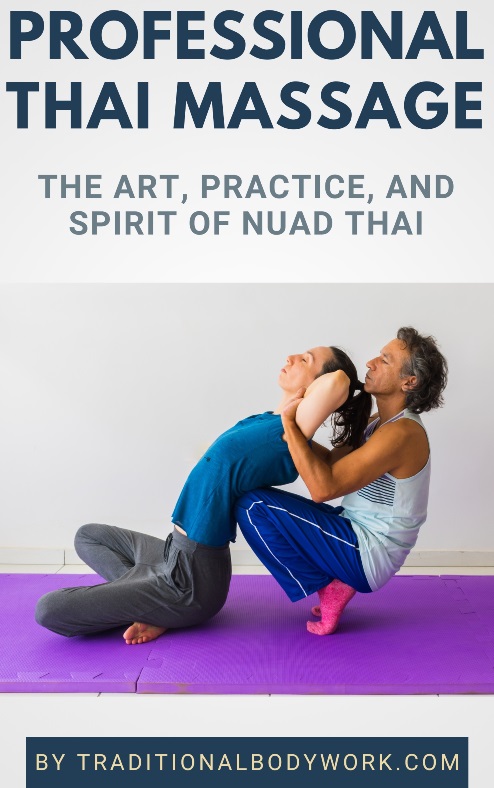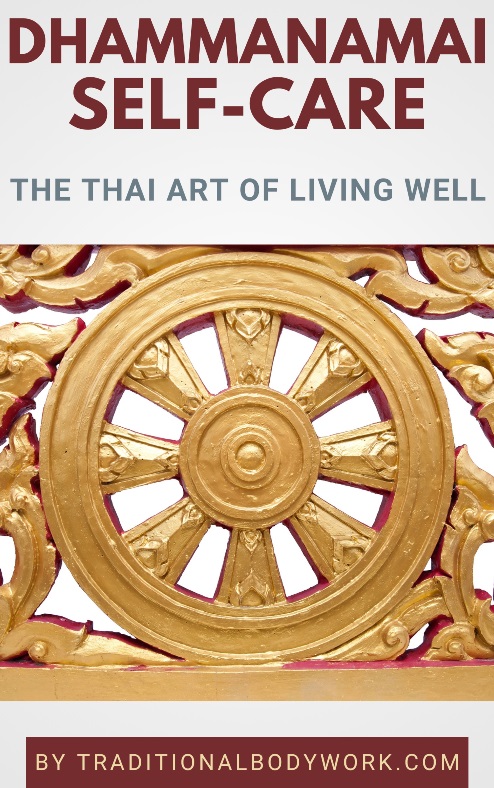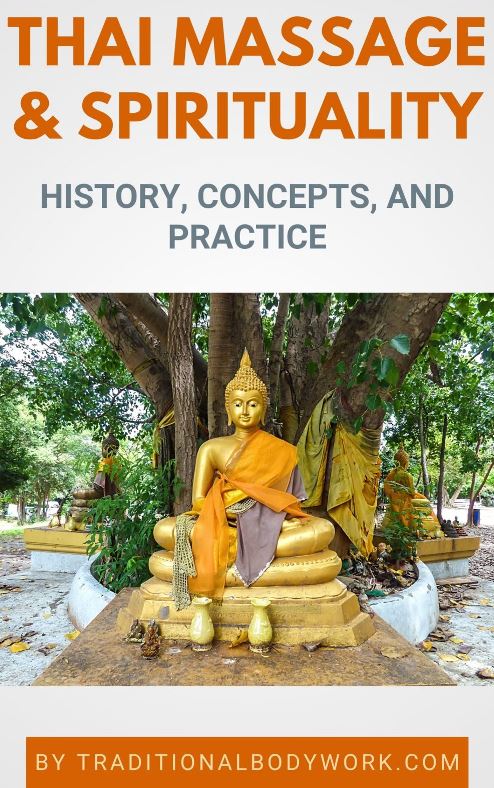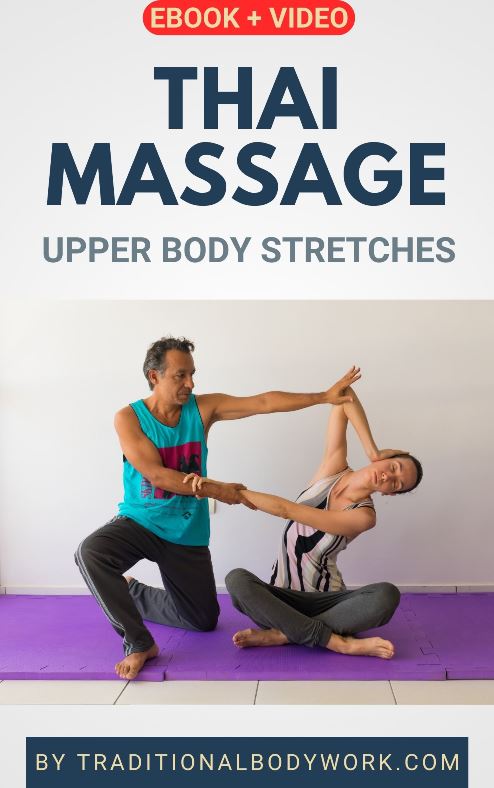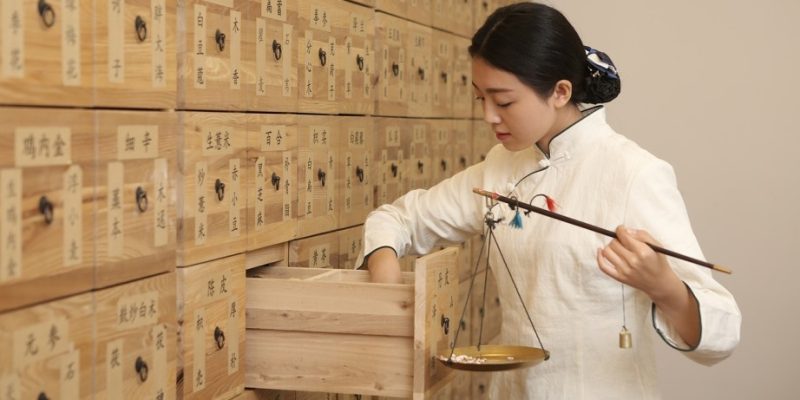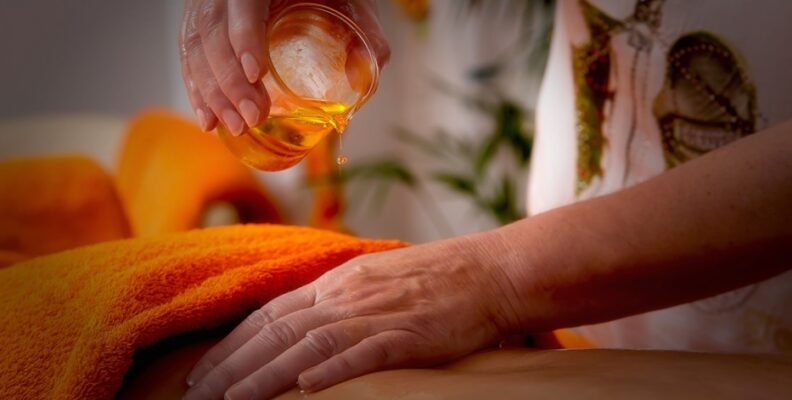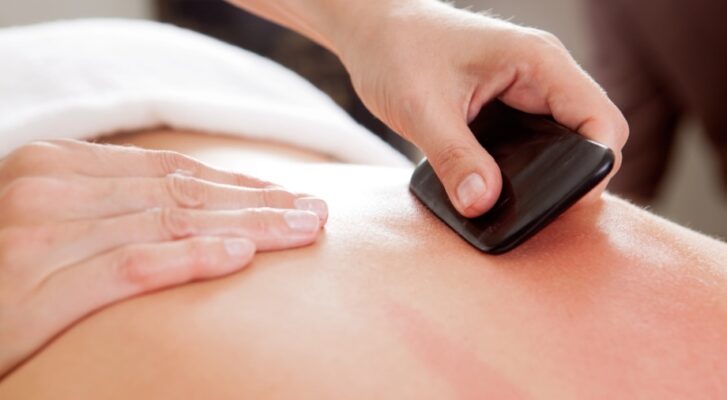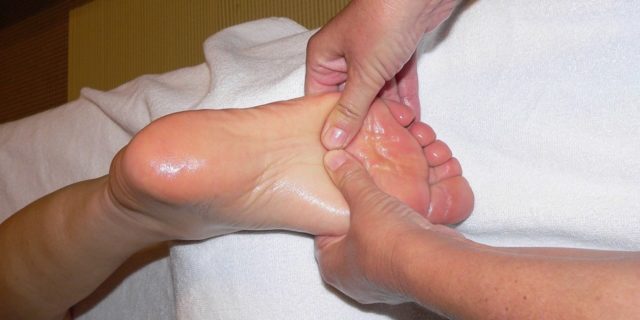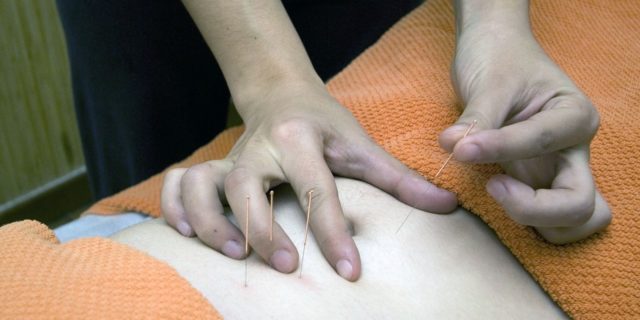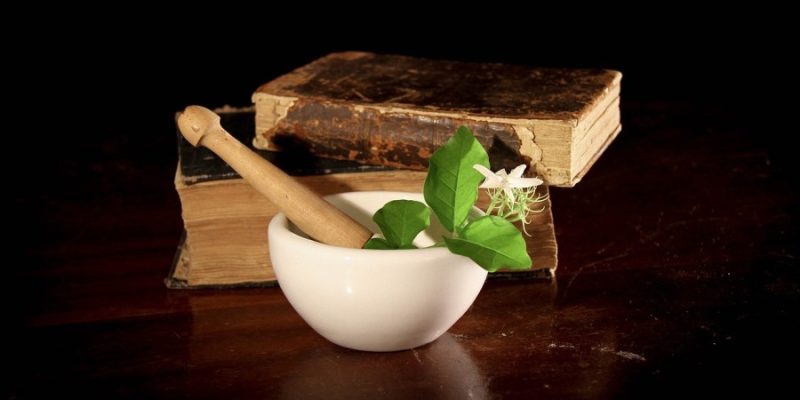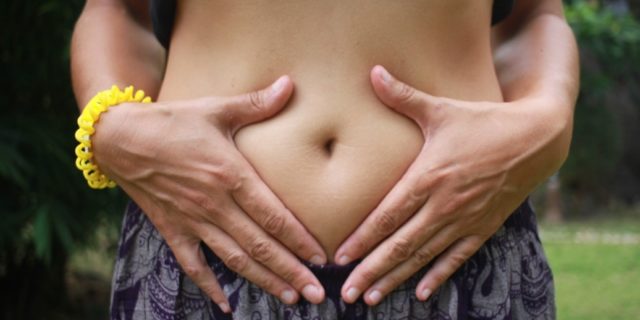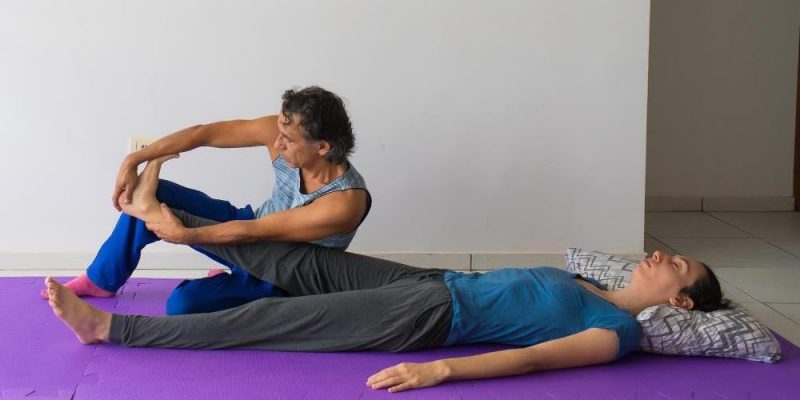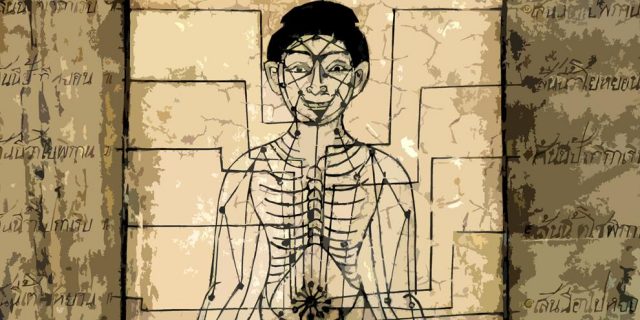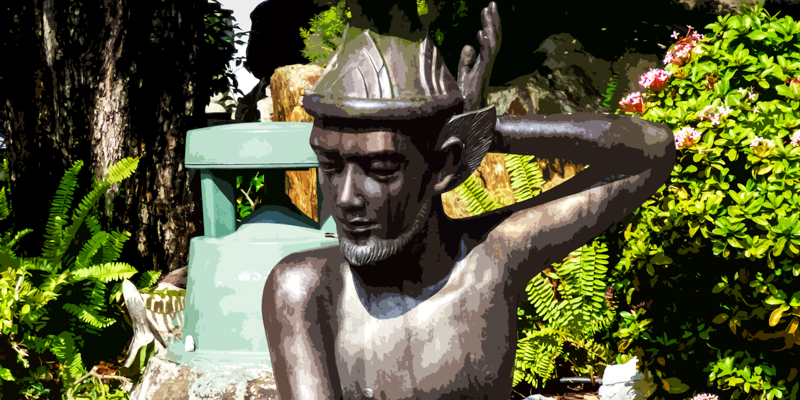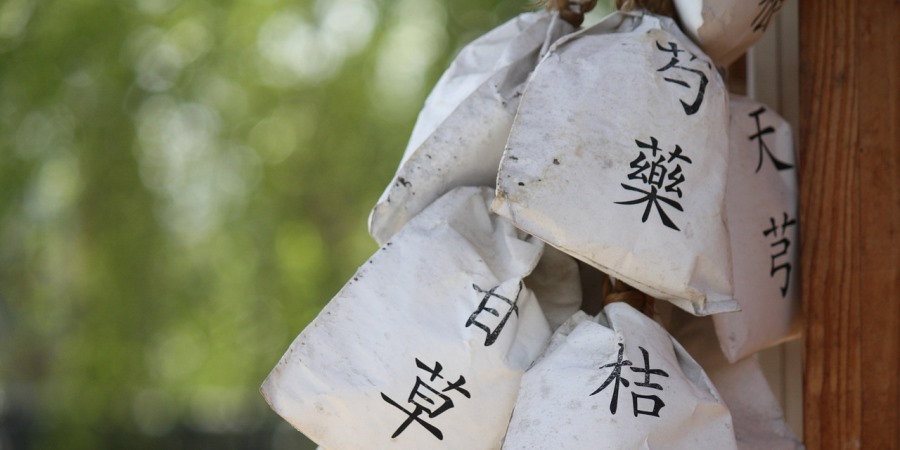
Today we know that Thai Traditional Massage and Thai Traditional Medicine (TTM) came about over a period of almost thousand years as a blend of Indian Ayurvedic, Traditional Chinese Medicine (TCM), Tibetan, Mon and Khmer indigenous medicine integrated with the medicinal knowledge the Thai people brought with them when they gradually entered the region now called Thailand. It’s thought that immigration of the Thai into the Northern Thailand regions started between the 10th and 12th century CE.
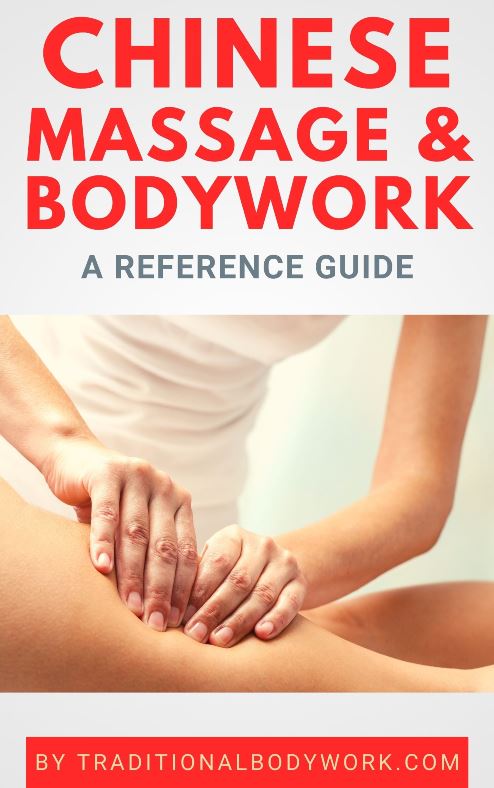
There are various ways of how the Chinese and TCM have influenced the Thais, their culture and their traditional medicine. Not only did the Thai originally inhabited areas of China bringing Chinese knowledge with them, but Chinese concepts, thoughts and applications can be found in virtually every aspect of daily Thai life, ranging from food, pottery, herbal medicines and recipes, religion, superstitions, and whatnot.
Moreover, the Chinese presence in Thailand (more than ten percent of the population) has always been large historically, notably in Bangkok and Chiang Mai, but actually throughout the whole of Southeast Asia, which, of course, had and has its own impact.
In addition, the Thai Royal Courts at various moments through their history from the 13th century up to the 18th century had TCM physicians aboard being part of the medical entourage of the Royal Family, and TCM treatments were not only actively used but there are also linguistic analogies in ancient Thai herbal medicine recipes that give evidence of the influence of TCM on Thai medical practices and the Thai pharmacopoeia up to the present day.
Perhaps one of the most visual influences of Chinese Medicine on Thai Traditional Medicine is that of the use of Chinese diagnostic techniques like analysis of the iris, the tongue, and pulse.

As for massage, Thai Foot Massage is one of the Thai Massage modalities strongly influenced by Chinese reflexology (especially recently with renewed interest) and you’ll find a number of massage training schools in Thailand offering Thai Foot Massage & Reflexology training, while at the same time — without a blink of the eyes — mentioning that it’s based on Chinese Reflexology points, like, for instance being the case in the Wat Pho Medical Massage School’s Foot Massage course.
Another famous contemporary example of a Thai-Chinese massage blend is Chi Nei Tsang (Thai Abdominal Chi Massage), the internal organs massage modality quite recently developed by Master Mantak Chia, which today conquers the world as the abdominal massage treatment modality of excellence. By the way, Chi Nei Tsang’s little sister, Karsai Nei Tsang (Thai Genital Detox Massage), follows the same principals.
Apart from the abovementioned examples TCM itself is also a popular treatment modality in Thailand, used by most of the Thai population as alternative medicine alongside Western Biomedicine and TTM.



